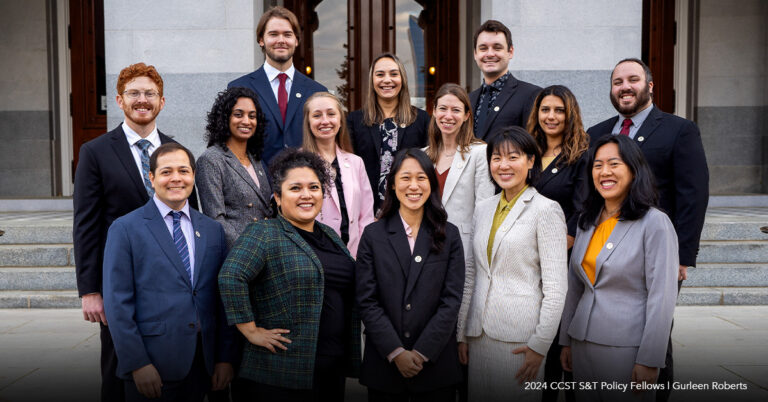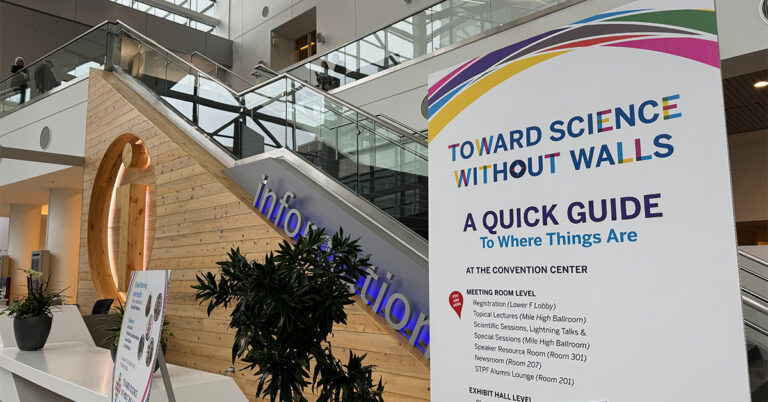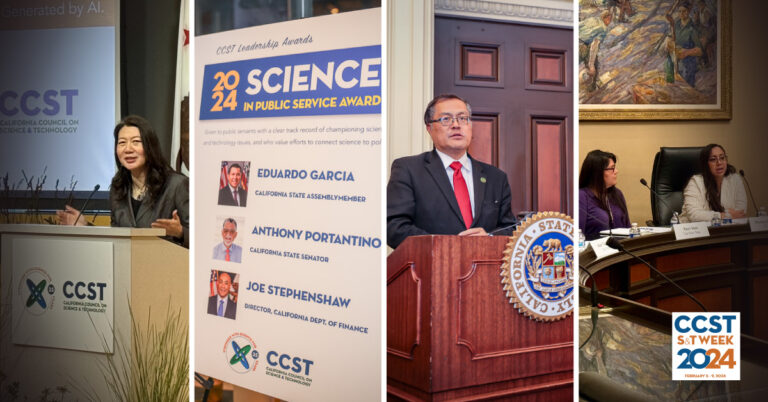Update: Applications for the CCST Science & Technology Policy Fellowship Have Closed
CCST Science Fellows in Training: Day on the Delta
February 28, 2017 | CCST S&T Policy Fellows, Photo Gallery

Anna Reade, PhD, is a member of the 2017 Class of CCST Science & Technology Policy Fellows. She received her PhD in Developmental Biology from UCSF, where she used laser microscopes to study molecular signaling critical to proper embryo growth and formation. Reade completed her BS in Cell and Developmental Biology at UC Santa Barbara. Reade’s fellowship placement is with the California State Senate Standing Committee on Environmental Quality and Senator Bob Wieckowski (D-Fremont), Committee Chair.
About three weeks into our CCST Science Fellows training boot camp in November, I woke to a particular excitement that I had not felt in a long time: I was going on a field trip!
I had thought that field trips were a long-lost treat of my childhood past. But on this Monday, we were being awarded a brief respite from our intense month of training — what we Science Fellows had fondly dubbed our “drinking from a firehose” lessons on policymaking and capital life. Adding further excitement to the day was our destination: the Sacramento-San Joaquin River Delta, a unique and integral part of California’s water system through which the Sacramento, San Joaquin, Mokelumne, Cosumnes, and Calaveras rivers flow.

Growing up in a small town in California’s inland desert, I had been relatively unaware of the importance of the Delta to California’s history, economy, environment, and water policy.
That all changed when I met my husband and his family. The state of the Delta was a constant backdrop to my husband’s childhood. His father is an environmental toxicologist, who often took him out to collect samples and play in the Delta. It would take just a few conversations around the dinner table for anyone to pick up on the importance of the Delta to my husband’s family. So for me, the Delta felt like that family member or friend whom everyone talked about, but you yourself had never met. Today, I was finally going see the Delta for myself.
Our first stop was the town of Locke.
Locke was founded in the early 20th century by Chinese immigrants and is now designated as a National Historic Landmark District. Under the authority of the Swampland Reclamation Act of 1861, much of the Delta’s wetlands were actively being drained to reclaim the land for purposes such as agriculture. To prevent flooding of these areas, hundreds of miles of levees were also being built, mainly by poor Chinese immigrants. In the end, these immigrants reclaimed thousands of acres of Delta wetland into arable land. However, Chinese immigrants faced harsh discrimination at the time, especially in major cities. Additionally, under the California Alien Land Law of 1913, Chinese immigrants were unable to own land in California.
In 1915, a group of Chinese immigrants asked local merchant George Locke for permission to lease and build a community on his land. Thus established, Locke or “Lockeport” became a rural enclave for the Chinese. The town would grow over the next few decades, and in addition to being home for hundreds of Chinese farm laborers, it would become a destination for illicit entertainment, gaining the nickname “California’s Monte Carlo”.

Learning about Locke, its history, and of the history of Chinese immigrants in California was particularly important for me — not just as a Californian, but also as a second-generation Chinese American.
But the rest of the day engaged the scientist in me. We were treated to several tours led by local experts on Delta water policy and science, taking in another torrent of fascinating information. A few aspects of the Delta that stood out for me were:
- The Delta, with its system of rivers, levees, channels, pumping stations, bridges and islands, is massive. It is quite the amalgamation of natural and man-made structures.
- The Delta is a unique agricultural area. Much of the Delta is covered in thick, highly productive peat soil, and wonderful produce comes from this area — including the grapes for one of my favorite wines. However, when peat soil is exposed to oxygen it decomposes, resulting in large losses of soil on the islands used for farming in the Delta.
- Some islands in the Delta are now 15-20 feet below sea level. This loss of land is a huge concern for the Delta, as it puts more water pressure on the levees and increases the chances of levee failure and flooding. The U.S. Geological Survey is currently studying how to slow down or reverse this land loss, known as subsidence.
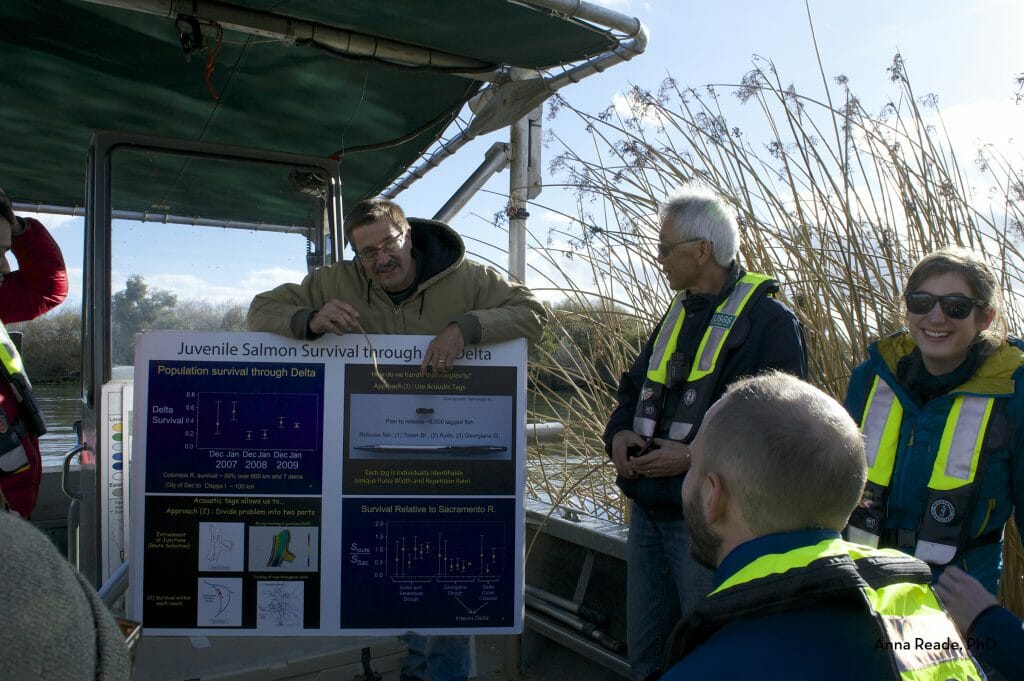
Having since been placed in the Senate Environmental Quality Committee, this chance to visit and explore the Delta now gives me a deep appreciation of its many scientific and policy issues, and has better prepared me for my fellowship year in the California State Legislature. By the end of this fantastic day out on the water and the winding Delta levees, I was struck not only by the importance of the Delta to so many lives and species, but also the simple beauty of this unique and vital ecosystem — and its deep connection with California’s history.
— Anna Reade
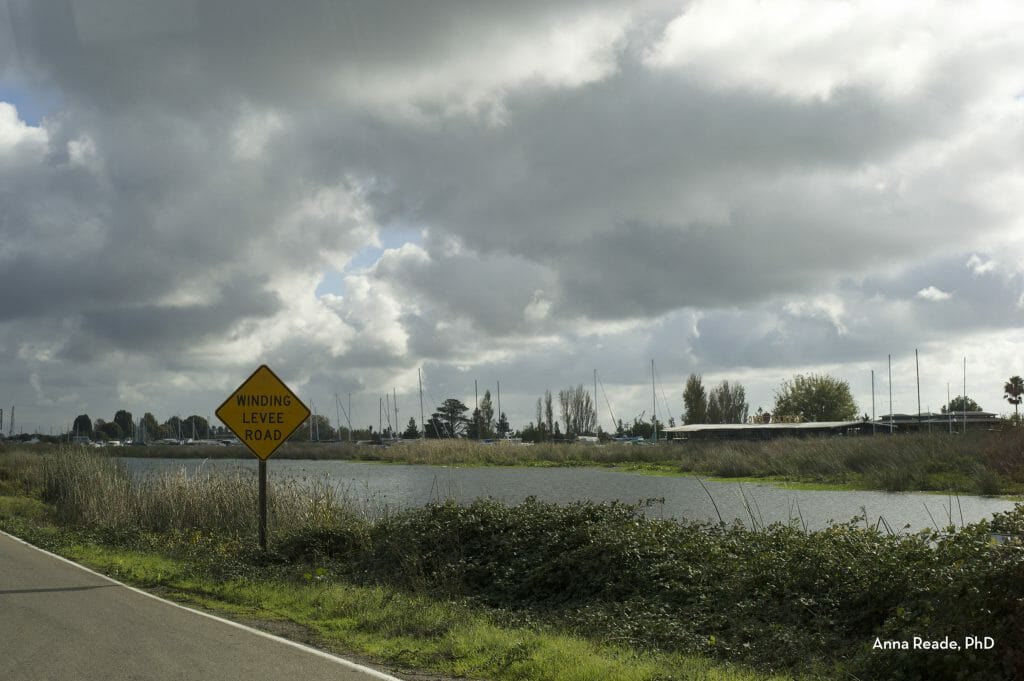
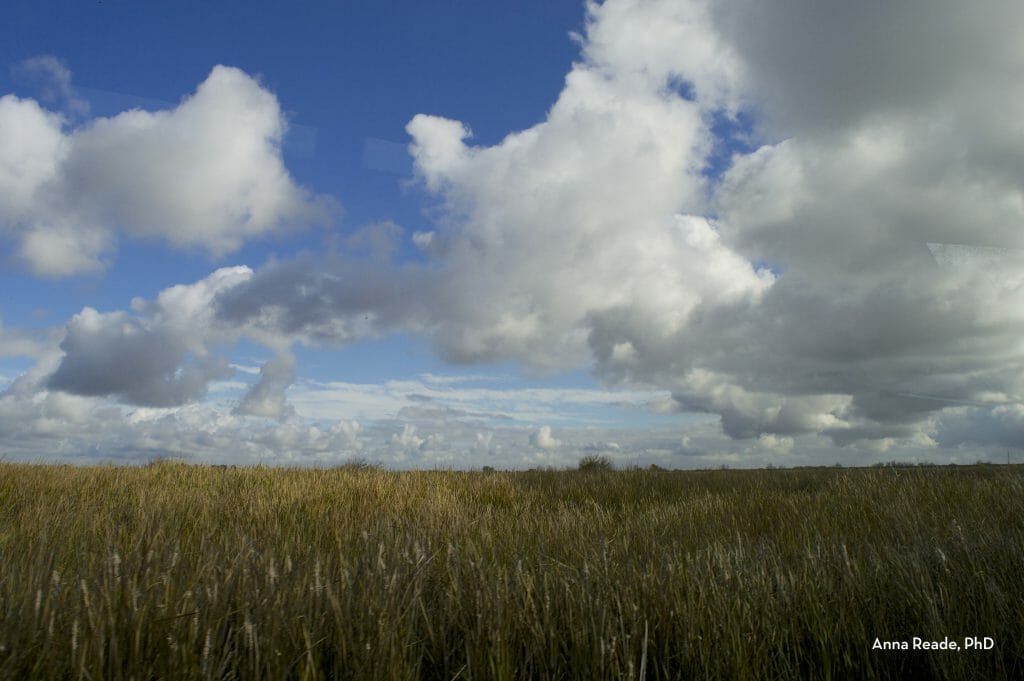

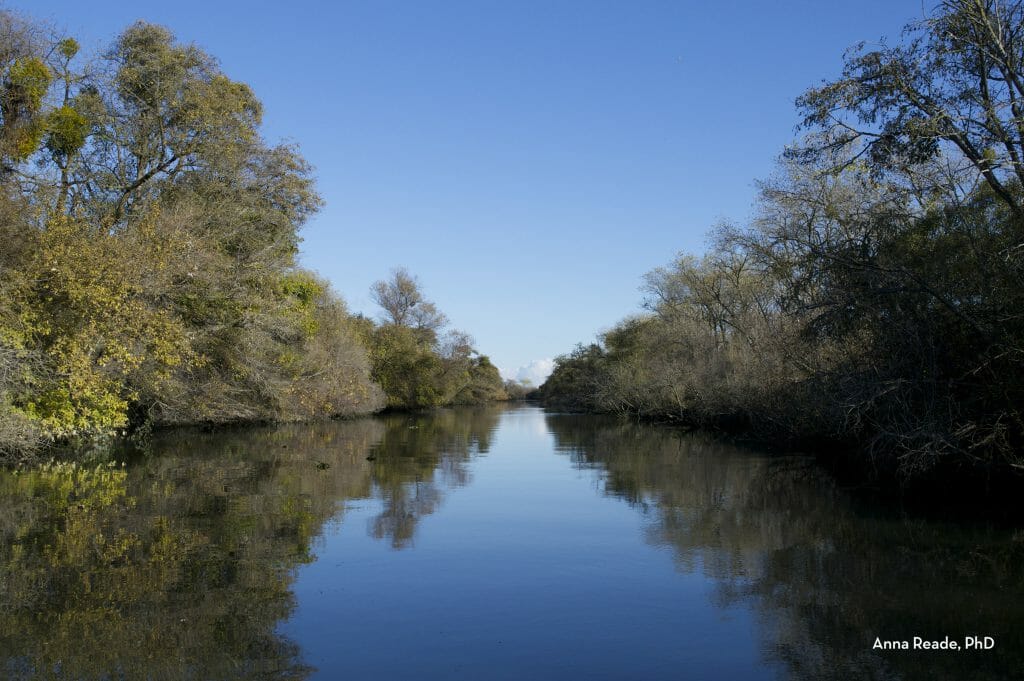

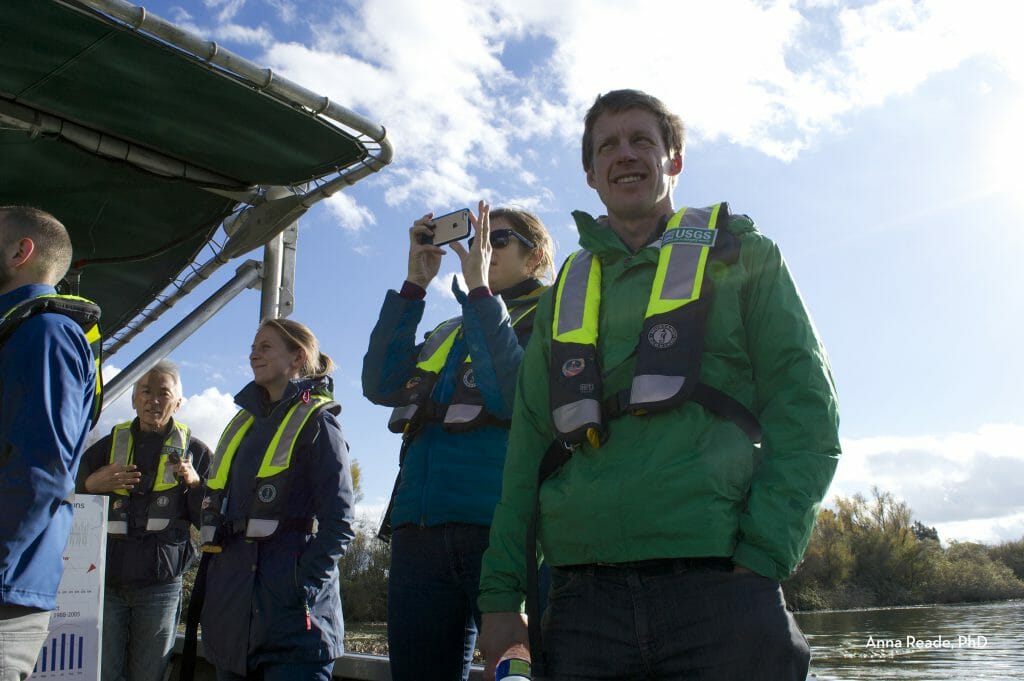

See more of Anna Reade’s gorgeous photos at our CCST Science Fellows Facebook gallery.
The CCST Science & Technology Policy Fellowship trains scientific thinkers to be policy-savvy, while helping equip California’s lawmakers with science-savvy staff. Follow updates from the CCST Science Fellows on Facebook at facebook.com/ccstfellows and on Twitter @CCSTFellows. Explore the CCST Science & Technology Policy Fellowship here.
Find the California Council on Science and Technology on Facebook at facebook.com/ccstorg, on Twitter @CCSTorg, and on LinkedIn. Learn more about CCST at www.ccst.us.

